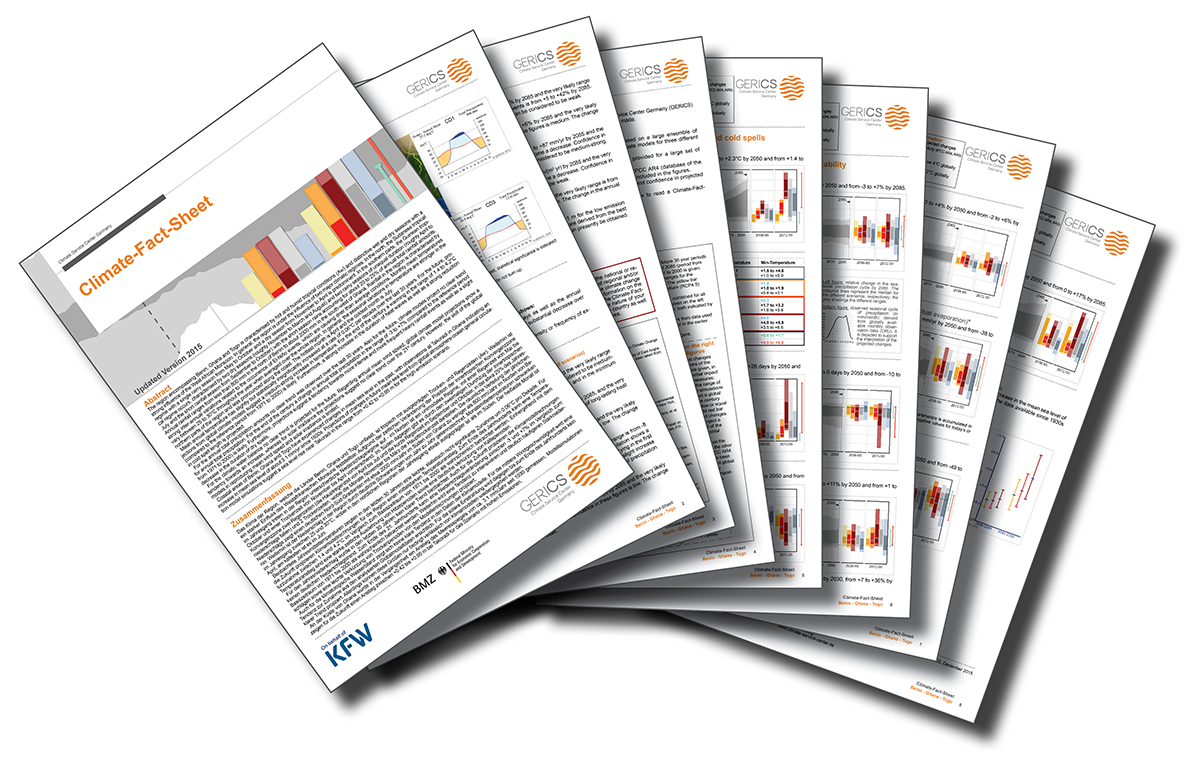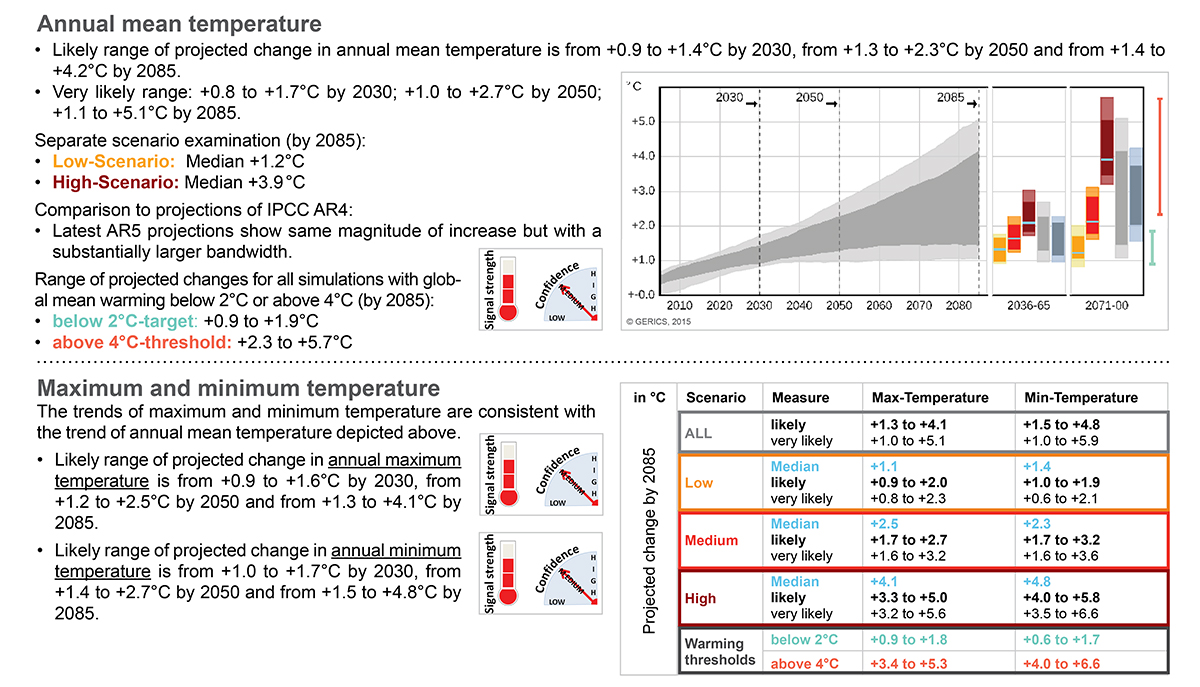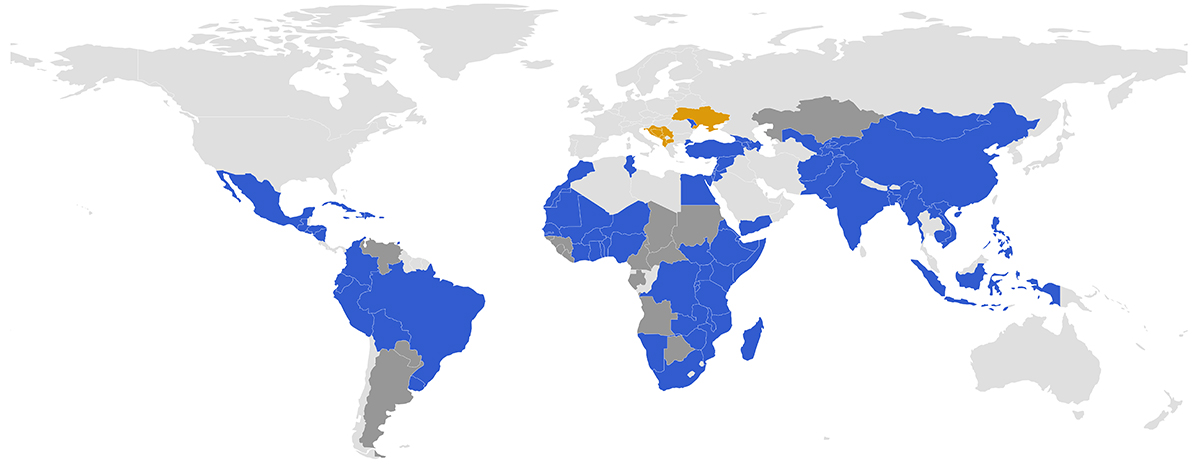Director of the Climate Service Center Germany (GERICS), Prof Dr Daniela Jacob outlines the fundamentals of climate change and what it could look like in the future
A lack of accessible, policy-relevant and targeted information on the climate and potential future climate change remains prevalent in many regions of the world today. This can act as a hindrance to many investments and scientific projects, where proving the level of a project’s susceptibility to climate impacts is now often mandatory for both consideration and approval. To meet this identified information gap, the Climate Service Center Germany (GERICS) has been developing tools which allow the presentation of both policy-relevant consideration and approval.
Many investment projects in the field of international cooperation (e.g. infrastructure) aim for a long duration. Therefore, such projects must be climate proof on a long-time horizon. This implies that state-of-the-art information about possible climate change and climate change impacts must be considered in the planning and decision-making process. Climate change information is widespread and freely available via various sources. The most comprehensive information source being the IPCC Assessment reports ( www.ipcc.ch ) provides information mainly on a global to continental/regional scale. But information is also available on regional scales (e.g. country reports).

While access to general climate change information might not be problematic for end users there is a high chance, however, that they are overwhelmed by the information available and struggle to interpret the information. Issues regarding multi-model-multi-scenario ensembles of climate change projections are rather complex and are often not taken up by the end user.
It is important to look behind the pure climate change information and include meta-information such as the size of the ensemble, the number of different emission scenarios, the spatial and temporal resolution of the data, the design and quality of the models and so on into the interpretation of the results.
To do this, expertise in the handling and interpretation of climate model output is necessary, which cannot be expected from the standard end user. This, therefore, leads to the situation that the rate of climate change information being up-to-date used in the decision-making process is directly linked to both the personal knowledge and enthusiasm of the individual end-user. This could lead to the fact that in the end, climate change information is not comparable between different projects within the same region or context.
Based on the need for consistent climate information, the Climate Service Center Germany (GERICS) together with the KfW Development Bank, jointly developed the concept of the Climate-Fact-Sheets (CFS). The Climate-Fact-Sheets summarise projected changes for a variety of different climate parameters, based on countries or regions. The climate change information is taken from the latest multi-model multi-scenario ensemble of global and regional climate projections to highlight changes in different emission pathways.
This allows projects in science, industry and finance, which take place within or across different global regions, nations, or climate zones, to quantify projected changes for different climate variables and comparable worldwide.

Additionally, the CFS provide statements on the climate history of the targeted area, as well as both general and key climate characteristics of both recent and current time periods. This gives the reader a broad understanding of the specific climatic backdrop to which they look to work within.
The focus of the CFS is providing concise analyse on projected future climatic trends. These trends concern each of the climate indices, based on three 30-year periods until 2100.
The creation of the Climate-Fact-Sheets emerges through careful analysis and compilation of a large amount of data available from both regional and/or global model simulations. Information for the CFS is gathered from two sources: primary data, such as projections from global and regional climate models or continental wide observational datasets and a literature review. Where possible, the focus is provided on uncertainties and the robustness of projects changes, respectively. References are also available to follow up on the information provided.
Each Climate-Fact-Sheet delivers standard information on the following climate parameters: annual mean, minimum and maximum temperatures, heat waves, cold spells, total annual and mean monthly precipitation, dry spells, intensity and frequency of heavy rain events, actual evaporation, climatic water balance, mean solar irradiance and mean wind speed. Additionally, if appropriate, changes in mean sea level are included into the Climate-Fact-Sheets.

Blue – CFS based on data from global climate models
Orange – CFS based on data from regional climate models
Grey – planned CFS
The accessibility of the information is essential and so the CFS is provided in compact forms, usually 5 to 6 pages long and are compiled from short text passages, tables and diagrams. Combined, the overall result is consistent, reliable and easily accessible climate information.
Currently, 58 CFS’s have already been compiled by GERICS. These are readily available and accessible and span countries and regions across eastern Europe, Asia, Africa and Latin America, focusing on developing countries and regions.
The CFS is provided free of charge by Climate Service Center Germany (GERICS). For more information about them, including how to access your own fact sheet, please visit our website at: http://www.gerics.de/products_and_publications/fact_sheets/climate_fact_sheets/index.php.en
Please note: this is a commercial profile
Prof Dr Daniela Jacob
Director of Institute
Climate Service Center Germany (GERICS)
Tel: +49 40 2263 38406











